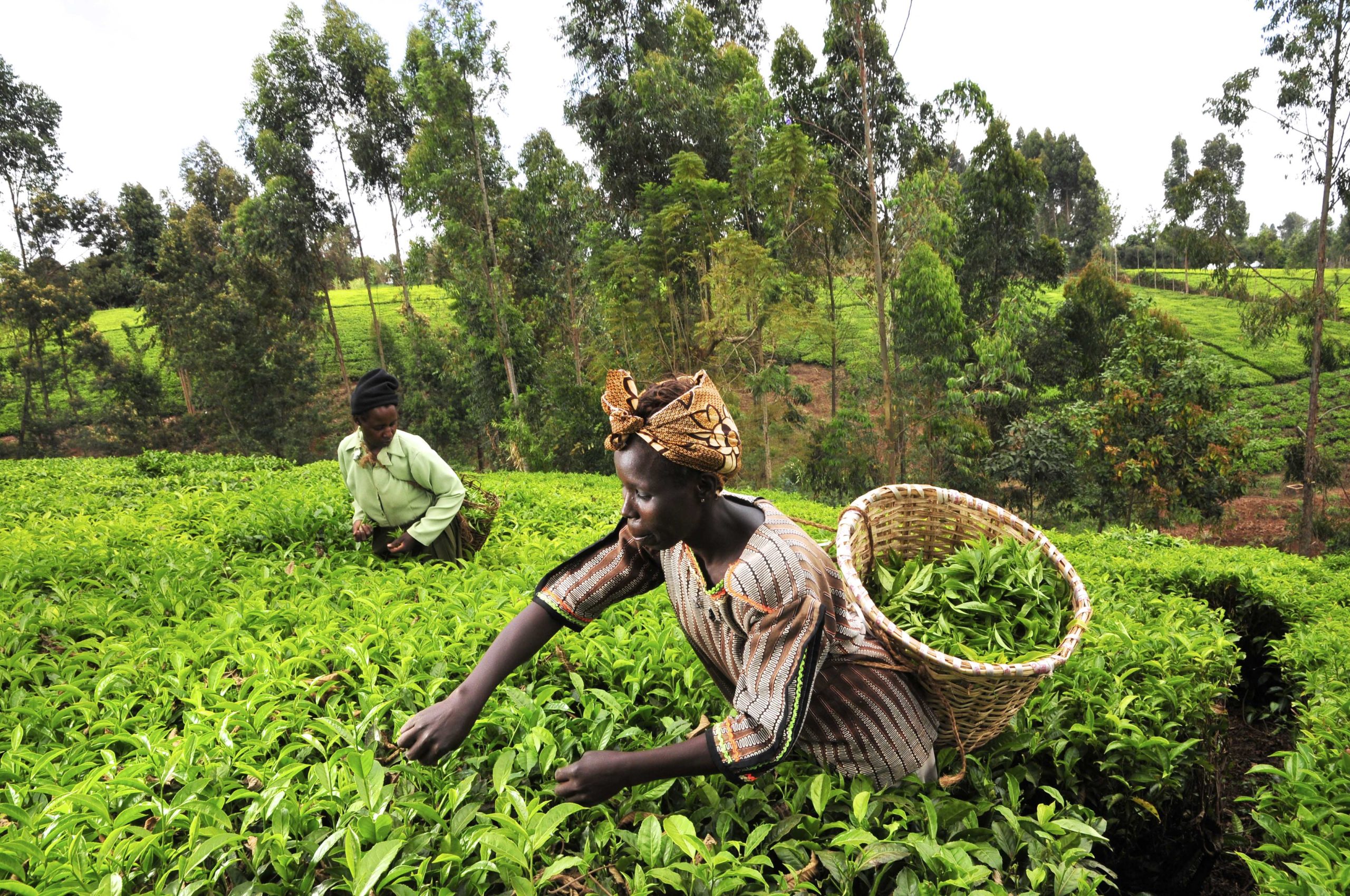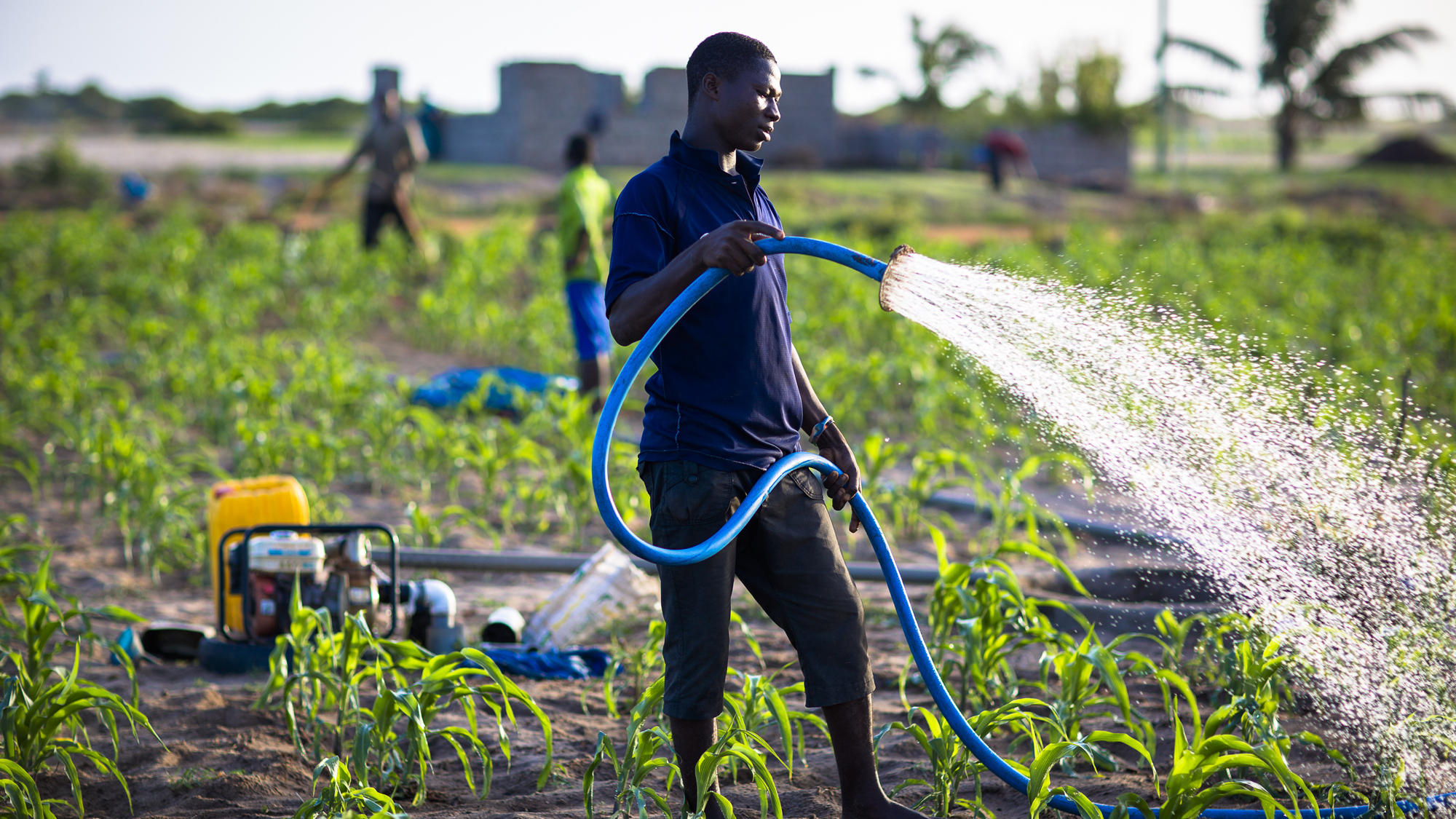The Chairman of the Chamber of Agribusiness-Ghana (CAG), Mr Anthony Morrison has asked government to as a matter of urgency put on hold its agriculture priority initiatives such as planting for food and jobs, and planting for food and export, to focus more on the cultivation of food security crops in preparedness for a possible food shortage which may occur due to the coronavirus.
The food security crops, he mentioned, are rice, maize, soybean, sorghum, yam, potato, cowpea, cassava, millet and groundnuts, and vegetables.
If this is achieved, he says, it will enable the country to provide enough food for its citizens to last the entire covid-19 pandemic period.
“The Tolon, Wenchie, Techiman areas can give the country enough onion, ginger, and tomatoes. The areas in the Southern part of the Volta Region can give also give enough pepper.
“So, let’s project the country and look at the major production zones and direct funding and machinery to provide more food for the country”, he said.
For the production of rice and maize, Mr Morrison said there are a lot of rice and maize farmers who have not been able to harvest their crops due to a lack of harvesting machineries and that the government should do a mop up of those already produced crops and buy them for storage.
Mr Morrison made this remark while speaking on the ‘Business Focus’ programme on Accra based TV3 last Monday, March 23, 2020.
Effect of Panic-buying on food security
Since the outbreak of the covid-19 in Ghana many people have predicted food shortages in the system due to the panic-buying that has accompanied the pandemic.
The panic-buying situation in the country was heightened over the weekend following the announcement of the Accra Metropolitan Assembly to close down markets within its jurisdiction to pave way for some fumigation exercise to be carried out.
The announcement appeared to have further heightened the fears of the already panic-struck populace as some of them immediately rushed to the markets to buy all the food items they may need to stuff their various kitchens.
A situation of demand and supply ensued and prices of food items have since gone up exponentially.
Visits to the markets
A visit by the Ghana Talks Business to the Kaneshie, Madina, Ordonna and Agbogbloshie markets, four of the major markets within the capital, over the weekend, revealed that prices of food items such as tomatoes, gari, yam, among others have gone up exorbitantly.
For instance, a container of tomatoes which previously sold at GH₵10 was now selling at GH₵60, however for those who could not afford the container, the traders sold three pieces of the tomatoes to them at GH₵5.
Again, Gari olonka which was selling between GH₵6-8 was now sold at GH₵15 while a pack of pepper had shot up from GH₵1 to GH₵5.
The price of yam had also moved from GH₵10 for three tubers to GH₵20 for the same number of tubers and an olonka of palm nuts had also increased from GH₵4 to GH₵15 while tuna fish which soldl between GH₵6-7, now sold between GH₵15-18.
Moreover, Plantain, which one could get between 10-15 pieces for GH₵6 was at GH₵6 for between 5-6 pieces while garden eggs was sold at GH₵5 for 3 pieces.
This sudden surge in the demand for food items is driving many predictions of food shortages in the system.
Mr Morrison further adds that the covid-19 disease outbreak and its resultant effect on global economy, presents Ghana an opportunity to take agriculture seriously, adding that the country had over the years undervalued the role of farming and agribusiness in food security.











